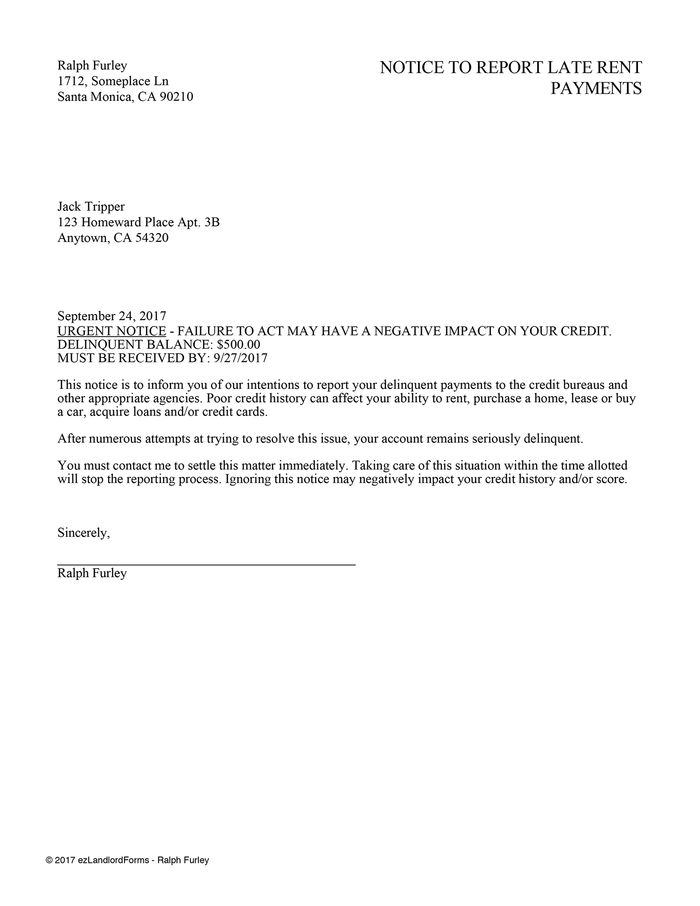Struggling with a tenant who consistently misses rent payments can be frustrating and stressful. You’ve tried reminders and polite conversations, yet the issue persists.
Now, you’re left wondering how to take the next step. Reporting a tenant for non-payment of rent is not only a necessary action in safeguarding your financial interests, but it also ensures a fair system for all parties involved. In this guide, you’ll discover clear, actionable steps to address this issue effectively and legally.
By the end of this article, you’ll feel more confident in navigating the complexities of tenant disputes, ensuring you protect your property and peace of mind. Dive in to learn how you can regain control and move forward with assurance.
Legal Grounds For Reporting
Landlords can report tenants for non-payment of rent. This is important for keeping records. You need proof like signed lease agreements. Receipts showing payment history are useful. Emails or texts can show communication about rent. Court documents may be needed for legal action. Non-payment can affect tenant’s credit score. This can also impact their rental history.
Legal grounds must be clear. State laws vary on tenant rights. Some require written notice before reporting. You must follow proper procedures. It’s important to act fairly and legally. Timely reporting helps resolve issues faster.
Gathering Necessary Documents
First, find your Lease Agreement. This document is very important. It shows the rules both you and the tenant agreed on. Check it to see details about rent payments. Make sure it is the latest version.
Next, collect Payment Records. This means all the receipts or records of rent paid by the tenant. If some months are missing, it can help your case. Keep these records safe and in order.
Finally, look at Correspondence with Tenant. This includes emails, letters, or messages. They should show talks about rent. If the tenant promised to pay, save those messages. They can be helpful if you need proof.
Communication With Tenant
Talk to your tenant in person. Explain why rent is important. Ask them why they haven’t paid. Listen to their reasons. Maybe they need more time. Offer them a payment plan. Help them understand the rules. Be clear about the consequences. Show kindness but be firm.
Write a notice to your tenant. State the amount they owe. Tell them when they should pay. Explain what happens if they don’t pay. Use simple words. Be clear and direct. Send the notice by mail. Keep a copy for yourself. This is important. It shows you tried to solve the problem.

Understanding Tenant Rights
Local rental laws vary by city and state. These laws protect tenants and landlords. It’s important to know your local laws. Laws tell what is legal and illegal in renting. They show how much notice a tenant needs before eviction. Some laws help tenants if they cannot pay rent. Tenants have rights to safe housing and privacy. Landlords must follow these laws.
Tenants have many legal protections. They cannot be evicted without notice. They must get a written notice before eviction. A tenant can ask for repairs if needed. Laws protect tenants from unfair treatment. These protections ensure tenants have a safe home. Tenants can challenge evictions in court. They must know their rights to avoid problems. Understanding these rights helps tenants stay secure.
Choosing The Right Legal Path
Small Claims Court is a fast way to solve money issues. It’s for small amounts. You don’t need a lawyer here. This court is simple. It’s less formal. You present your case. The judge listens. They decide quickly. Good for rent issues.
Hiring a Lawyer can be helpful. They know the law well. They help with complex cases. Lawyers speak for you. They give advice. They handle paperwork. Lawyers can be costly. Choose wisely. Make sure the cost is worth it.
Filing A Report With Authorities
Reporting a tenant’s non-payment to the local housing authority can help. They provide guidance on the legal process. You need proof of rent non-payment. This can be bank statements or rent receipts. Explain the situation clearly. Mention any past payment issues. Authorities may mediate between you and the tenant. They can offer solutions or advice. Keep records of all communications. This helps if the case goes to court.
Police handle serious rent issues. But non-payment is usually a civil matter. Still, involve them if you feel unsafe. They can provide protection. Document threats or harassment by the tenant. Police may offer advice on next steps. Always stay calm when talking to them. Provide all necessary information. Respect their guidance and follow their instructions. Keep a record of any police reports filed.
Navigating The Court Process
Collect all important documents. Gather rent agreements, payment records, and any notices. These documents prove your claim. Organize them neatly. Make copies for the court. A clear case helps the judge understand. Write down details about missed payments. Include dates and amounts. This shows the pattern of non-payment. Prepare a statement. Explain the situation briefly. Keep it simple and clear. Focus on facts, not opinions. Practice what you will say. Be ready to answer questions. Stay calm and respectful.
Arrive early at the court. Find your courtroom and seat. Listen to the judge’s instructions. Stand when asked to speak. Present your case clearly. Use your documents to support your statements. Answer any questions asked. Be polite and concise. Listen to the tenant’s side. Wait for the judge’s decision. Respect the court’s final ruling.
Exploring Alternative Solutions
Mediation can help both landlord and tenant. A neutral person listens to both sides. They help find a peaceful solution. This can avoid court. It saves time and money. Both parties must agree to try mediation. It works best if both are open-minded.
Payment plans can solve rent issues. A tenant pays rent in parts. This helps them manage money better. Landlords must agree to the plan. A clear schedule is important. Both parties should sign it. This creates trust. It can prevent future issues.
Preventing Future Issues
Landlords need clear steps to report tenants for non-payment of rent. Document all communication and payment records. Notify the tenant formally about the issue and seek mediation if necessary.
Improving Screening Processes
Good screening helps find the right tenant. Check their credit score and rental history. Ask for references from past landlords. Make sure they have a steady income. This step can save many problems.
Clear Lease Terms
A clear lease is important. Write every rule in simple words. List the rent amount and due date. Tell about late fees and rules. Make sure the tenant understands all parts. This keeps everyone happy.


Frequently Asked Questions
What Steps To Take Before Reporting A Tenant?
Before reporting, ensure you have a valid lease agreement and documented communication. Send a formal notice to the tenant. Offer a payment plan if possible. Keep records of all interactions and attempts to resolve the issue amicably. Consulting with a legal professional is advisable.
Can A Landlord Report Non-payment To Credit Bureaus?
Yes, a landlord can report non-payment to credit bureaus. However, this usually requires the services of a collection agency. Reporting to credit bureaus can impact the tenant’s credit score. It’s important to follow legal procedures and provide the tenant with notice before taking this step.
Is Mediation A Good Option For Rent Disputes?
Mediation can be a beneficial option for rent disputes. It provides a neutral platform for both parties to discuss and resolve issues. This process can prevent lengthy legal battles and help maintain a professional relationship. It’s often quicker and less expensive than going to court.
What Legal Actions Can Landlords Take For Non-payment?
Landlords can file for eviction due to non-payment of rent. This usually involves serving an eviction notice and filing a lawsuit. It’s important to follow local regulations and procedures. Legal action should be a last resort after attempting other resolution methods.
Conclusion
Reporting a tenant for non-payment requires clear steps. First, gather necessary documents. This includes the lease and payment records. Communicate with the tenant. Try resolving the issue directly. If needed, notify them formally. Use a written notice. Keep it professional and factual.
Seek legal advice if the problem persists. Know your local laws. They guide the eviction process. Remember, patience and understanding can help. It’s important to handle the situation calmly. Protect your rights while respecting the tenant’s. This approach helps in resolving disputes effectively.
Stay informed and proactive throughout the process.


